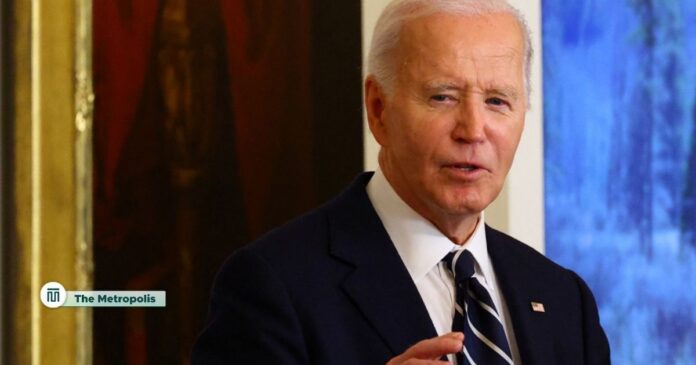The Biden administration announced on Tuesday that it would remove Cuba from its terrorism blacklist, while Cuba separately stated it would release up to 500 prisoners from its jails, marking significant steps that could reshape US-Cuba relations just days before Donald Trump takes office.
Biden’s announcements effectively reverse many of the sanctions imposed by Trump during his previous term, ending in 2021. If these changes stand, they would represent the most substantial advancement in US-Cuba relations since the Obama-era thaw.
Trump, a vocal critic of Cuba who labeled the island a state sponsor of terrorism, has not commented on the recent measures but has vowed a tough stance on the communist-led nation. He also nominated US Senator Marco Rubio, a Cuban-American and harsh critic of Cuba’s government, as secretary of state.
Biden’s plans, which are subject to Congressional review and the incoming Trump administration, would lift Cuba’s 2021 designation as a state sponsor of terrorism, easing sanctions on an island already grappling with a severe economic crisis.
Additionally, Biden intends to revoke a 2017 Trump executive order that limited financial transactions with certain Cuban military and government-linked entities, according to a senior administration official.
Biden also aims to prevent individuals from filing lawsuits against Cuban entities and foreign companies under the Helms-Burton Act, related to property seized following Fidel Castro’s 1959 revolution.
Just an hour after the US announcement, Cuban President Miguel Diaz-Canel revealed that Cuba planned to “gradually” release 553 prisoners following discussions with Pope Francis.
Cuba faced intense criticism from rights groups, the US, and the European Union after the imprisonment of hundreds of protesters following the July 11, 2021 riots, the largest protests since Castro’s revolution.
It was unclear whether the released prisoners were detained after those protests. A Cuban foreign ministry statement described the decision as reflecting the “humanitarian nature of the Cuban justice system” but did not link the release to the Biden announcements.
The Cuban government labeled the release as a step in the “right direction,” yet accused the US of continuing “economic warfare” against the island, cautioning that these measures could be swiftly reversed and that the long-standing US trade embargo against Cuba remains in place.
Trump, set to take office on January 20, may seek to reinstate the sanctions that Biden has overturned.
US Congressman Mike Waltz, Trump’s national security adviser, applauded the release of political prisoners and suggested Biden’s actions could be undone.
“Anything that they’re doing right now we can do back, and no one should be under any illusion about a change in Cuba policy,” Waltz said in an interview with Fox News.
Neither Trump’s transition team nor Rubio’s Senate office responded to requests for comment.
A US official confirmed that Biden’s team and Trump’s team had “been in communication” on the issue.
In a brief letter to Congress, Biden stated that the announced actions were “necessary to the national interests of the United States and will expedite a transition to democracy in Cuba.”
PRISONER RELEASE
Cuba has been discussing the possibility of a prisoner amnesty with Vatican officials since at least 2023.
The Vatican has played a crucial role in past negotiations for the release of prisoners and helped broker the historic renewal of relations between Cuba and the US in 2015 under former President Barack Obama.
“There is broad bipartisan support from both parties and certainly both administrations that people in Cuba should not be unjustly detained,” a senior Biden official said on Tuesday.
Cuba maintains that those detained after the 2021 protests were guilty of crimes ranging from vandalism to sedition.
In the short term, Biden’s new measures are expected to provide Havana with more leeway as it confronts a severe economic crisis.
Cuba has faced widespread shortages of food, fuel, medicine, and electricity, which have fueled a record-breaking exodus from the island. Over a million Cubans have left by land and sea since 2020, many heading to the United States, which has contributed to the ongoing crisis at the US border.
Trump placed Cuba on the US State Sponsor of Terrorism list in 2021 in the final days of his first term, accusing Havana of supporting “acts of international terrorism” by harboring US fugitives and Colombian rebel leaders.
Cuba rejected these allegations, calling the designation a “farce” and seeking its removal from the list, which prohibits US economic aid and bans US arms exports.
Biden officials noted that a recent review of Cuba’s inclusion on the list was the basis for their decision.
“In our review, what we found is that there is no credible evidence at this time of ongoing support by Cuba for international terrorism,” said one US official.



